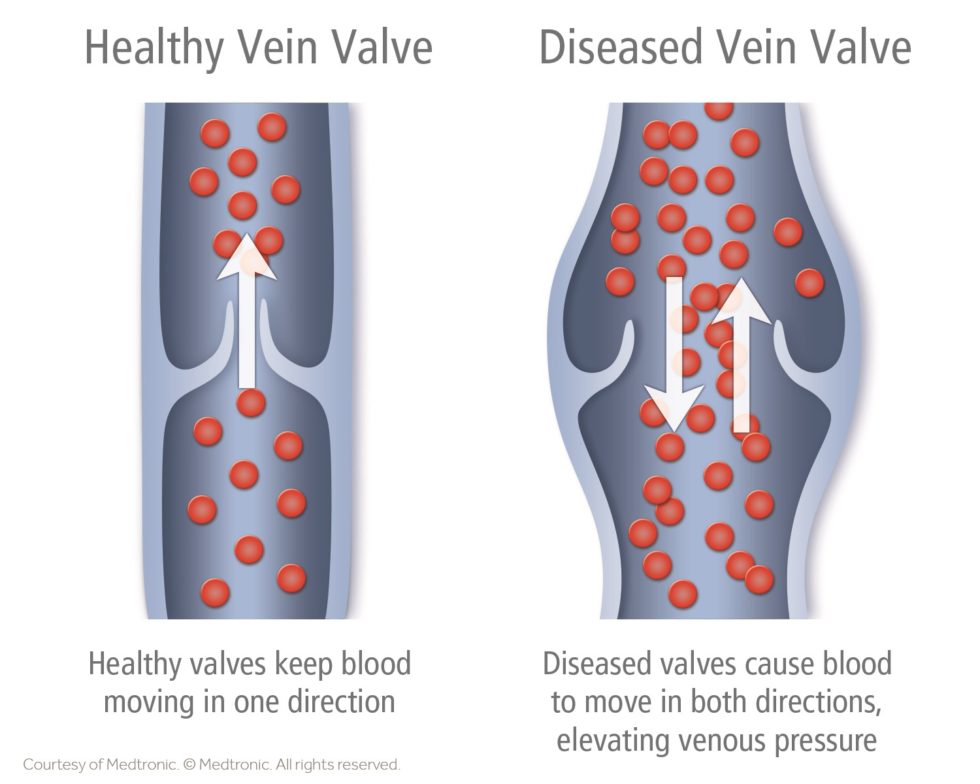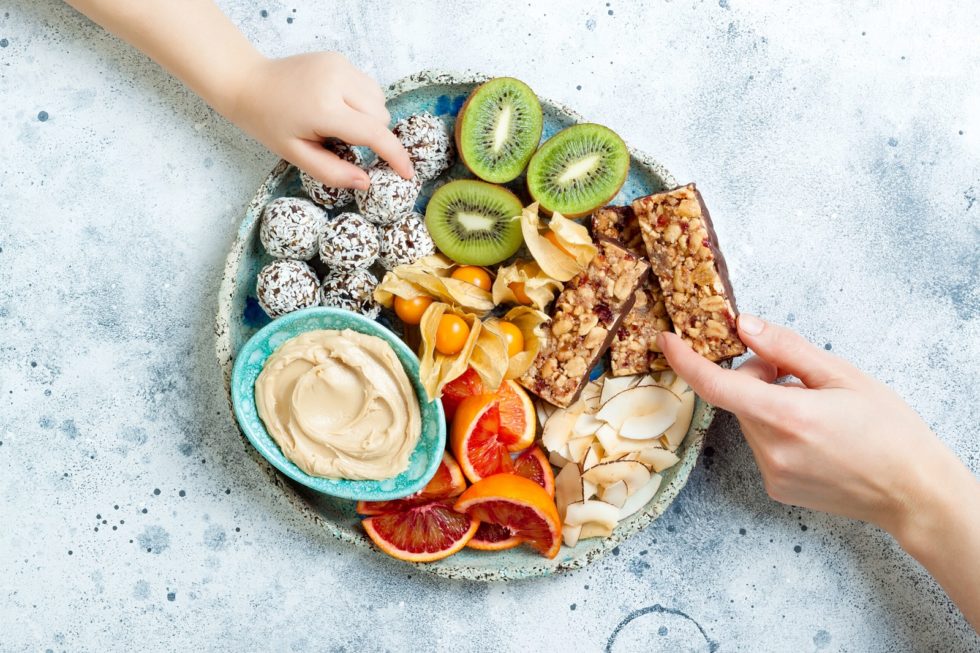Top 6 Foods to Improve Vein Health
Author: StrideCare Internal Team

If you want to know one of the best ways to improve vein health and reduce your risk for varicose veins, spider veins, and more complicated venous disease, look no further than what you’re eating. Many people don’t realize that beyond the obvious benefit of losing weight, your diet plays a huge role in maintaining proper blood circulation throughout your body. Eating the right foods and avoiding bad ones can prevent conditions like the ones mentioned above and keep them from getting worse.
Sadly, more than 20 million Americans suffer from vein disease, which can range from simple cosmetic annoyances such as spider veins to painful varicose veins, restless leg syndrome, and any of the following conditions:
- Chronic venous insufficiency
- Chronic pelvic pain
- Deep vein thrombosis (blood clots)
- Leg ulcers and sores
- Pelvic congestion syndrome
The Importance of Veins and Vein Health

Veins are an elastic network of powerful vessels in the circulatory system. These vessels carry deoxygenated blood back to the heart. Unlike arteries, which carry blood away from the heart, veins need to push blood against gravity and support many systems critical to your cardiovascular health and many other functions of blood. Any hiccup in this intricate process can cause a variety of vein complications.
On top of that, our veins can develop issues and become diseased as we age—many times because of our long-term lifestyle choices. In patients with poor vein health, the vein valves weaken and struggle to pump blood as efficiently as they did when we were younger. As a result, blood can flow backward, begin to pool, and cause our veins to stretch, swell, enlarge, and even become twisted.
Foods to Avoid That Exacerbate Vein Health
Salt, sodium, and added sugars — Per the American Heart Association, salt and sodium in your bloodstream pulls water into your blood vessels and increases the amount of blood inside them. Naturally, this leads to an increase in blood pressure, and over time, this stretches blood vessel walls and creates plaque that can block blood flow. Salt and sodium can be found in canned goods and processed meats. Sugar is found in all sweets.
Fried foods and fast foods — Fried chicken, French fries, pizza, milkshakes, etc., are tasty but also prepared in unhealthy oils. These have an incredibly high fat count that leads to weight gain and constipation, placing unnecessary stress on your veins. As a result, they are pretty much off-limits for anyone who wants to improve vein health.
Refined carbohydrates — A diet high in simple carbohydrates can lead to poor vein health and a variety of chronic diseases, including diabetes. Examples of simple carbs to avoid include sodas, baked treats, fruit juice concentrate, cereal, and even packaged cookies.
Caffeine — Too much caffeine can constrict blood vessels and elevate blood pressure, causing immediate strain and stress on your veins in your lower extremities. While it is difficult to eliminate caffeine sources such as a morning cup of coffee, improving vein health starts with at least reducing your intake.
Foods to Eat That Improve Vein Health
While it is important to avoid bad foods, it is also imperative that you replace those foods with ones to help you maintain a healthy Body Mass Index, boost your energy so that you remain active, and promote overall blood circulation.

Which Foods Help Improve Vein Health? Below are a Few to Consider:
- Fruits, vegetables, and leafy greens — Focus on foods that have a variety of colors. This includes tomatoes, pomegranate, broccoli, spinach, citrus fruits, red and yellow onions, celery, kale, strawberries, and tropical fruits. Fruits and vegetables have anti-inflammatory properties, and leafy greens are high in fiber.
- Fiber-rich foods and whole grains — Fiber-rich foods help manage blood pressure, cholesterol, and promote digestion, meaning that it will be less likely for undue pressure buildup in your veins. According to the Mayo Clinic, women should try to eat at least 21 to 25 grams of fiber a day, while men should aim for 30 to 38 grams a day. Fiber can be found in everyday items such as apples, carrots, nuts, seeds, legumes, oatmeal, and berries.
- Foods high in Vitamin C — Vitamin C is a key component to improved circulation and improved vein health. You can find Vitamin C in anything that is citrus-related, as well as onions, spinach, tropical fruits, potatoes, peppers, brussels sprouts, and broccoli.
- Foods high in Vitamin E — Vitamin E has been shown to prevent deep vein thrombosis (DVT), especially in women, according to one study. Vitamin E can be found in mangos, avocados, olive oil, pumpkin, nuts, seeds, fish, and dark leafy greens.
- Fish and fish oil — Salmon, mackerel, tuna, sardines, etc. are high in Omega-3, which stimulates blood flow, breaks down blood clots, and improves vein health.
- Dark chocolate — Dark chocolate, not milk chocolate, reduces inflammation, improves mood, and improves vein health by increasing blood flow. According to one study, researchers say the polyphenols in dark chocolate reduce oxidative stress and help the body form more nitric oxide, a compound that causes blood vessels to dilate.
StrideCare Wants to Help You Improve Vein Health
Good nutrition and eating the right foods are significant to managing symptoms associated with poor vein health. In many cases, eating right can keep things from getting worse. However, if you’re doing all the right things with your diet and still struggling with leg pain, give us a call.
StrideCare has long been a leader in performing leading-edge procedures to treat vein diseases such as varicose veins, spider veins, restless leg syndrome, pelvic congestion syndrome, varicoceles and more—all the while providing compassionate patient care. The vascular physicians at StrideCare are board certified diagnostic radiologists with additional fellowship training in vascular and interventional radiology.
If your veins need treatment, or you have questions on how to avoid worsening vein disease—including diet and lifestyle changes—the experts at StrideCare will recommend an individualized plan to help you get the best results. Request an appointment for a vein disease evaluation to discuss your options. For a consultation with one of our expert doctors.
Prior to starting any new treatment or questions regarding a medical condition, always seek the advice of your doctor or other qualified health provider. This information is not a substitute for professional medical advice.
StrideCare serves the South Texas area including Houston, San Antonio, Austin, Round Rock, Bastrop, Brushy Creek, Cedar Park, Converse, Georgetown, Hutto, Kyle, League City, Leander, Marble Falls, New Braunfels, Pasadena, Pearland, Pflugerville, San Marcos, Schertz, Sugar Land, The Woodlands, Universal City and more.


